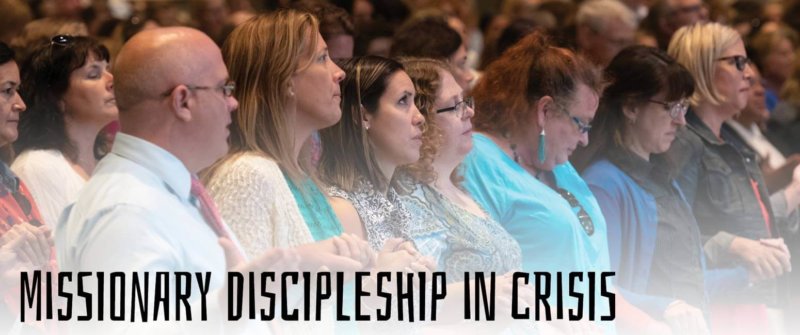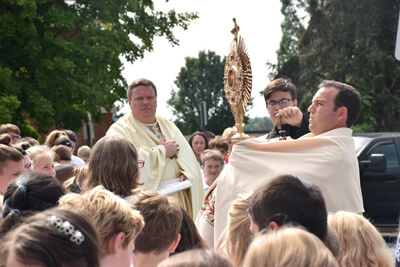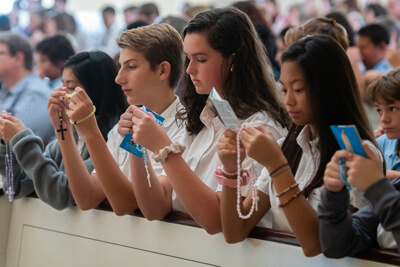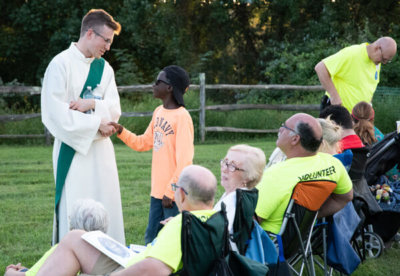We must remember that Christ calls us all to have pure hearts and that we are all called to live chastely. As Jesus says in the Gospel of Matthew, anyone who looks at another person lustfully “has already committed adultery in his heart.” Humility and chastity should be central to the lives of every Christian and especially priests and bishops.
I will continue to seek more lay leadership in the Church, at all levels, particularly a leadership that deepens the feminine genius. The Gospel of John begins with a wedding feast at Cana, where both Jesus and his mother are celebrating with a newly married couple that has run out of wine. In this passage, we see a beautiful exchange between a man and a woman. Mary calls Jesus into prayer. Mary calls Jesus to live out his mission from the Father. Mary is one of the few apostles who remains with Jesus throughout his life and ministry, even to the foot of the cross. As we are told, she kept all of these things in her heart. The feminine genius is not defined by timidity. We have strong holy women in the history of the Church who have rightly challenged priests and bishops, much like our own beloved Mother Mary Lange. Women and men are complementary and the Church needs both: strong, holy, missionary men and women.
While there are many heroically virtuous priests and bishops, much of this crisis is born from an unwillingness or inability for some priests to live out their priestly or episcopal fatherhood. Individuals across the ideological spectrum have suggested that it is solely a crisis of same-sex attraction, or power and control, or clericalism. Let me be clear – these are all parts of the problem and we must speak this honest truth and prepare our priests well to live lives of virtue. Indeed, we need priests and bishops who are true fathers and pastors.
We are blessed in the Archdiocese of Baltimore to have 41 seminarians preparing to become priests who will give their lives in ministry for others. Like all candidates to the priesthood in our Archdiocese, they have undergone extensive psychological evaluation before being accepted as seminarians.
In our Archdiocese, every applicant undergoes a two-day evaluation conducted by three or four psychologists. Testing includes a personal profile and spirituality questionnaire, a clinical interview, a psychosocial interview, a spirituality interview, a personality inventory, pornography addiction screening and an evaluation of cognitive ability.




